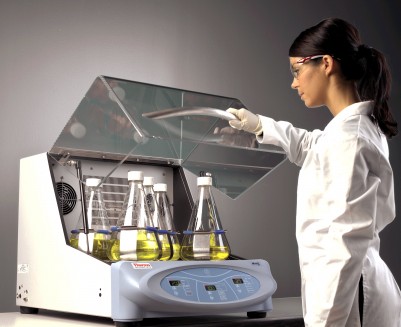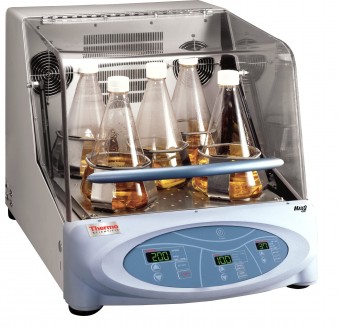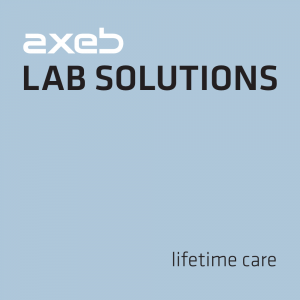The MaxQ 4000 is a versatile, incubated and refrigerated shaker combining the convenience of a benchtop design with orbital shaking technology, all in one package.
The MAX Q 4000 Benchtop Orbital Shaker incubator is durable and easy to use with a spacious 18 x 18 in. platform for higher vessel capacity. These benchtop units handle up to six 2L flasks.
The clear, scratch-resistant lid allows unobstructed sample viewing without disturbing chamber temperature.
- Triple eccentric drive delivers uniform motion with 19mm circular orbit
- Timed or continuous-run modes
- Safety interlock stops platform when lid is opened
- Precisely monitor temperature and control chamber temperature over complete range with +/-0.1C accuracy at 37C with PID temperature controller.
- Over temperature safety feature with independent thermostat provides additional backup by controlling heat if main temperature controller fails.
Analog Models
Speed control from 40 to 400rpm by rotary dial
Integrated tachometer monitors and displays speed in rpm to guarantee an accurate setting
Continuous and timed operation from 1 to 60 min.
Digital Models
- Variable speed control from 15 to 500 rpm
- View speed, temperature and time simultaneously on three individual LED displays which helps minimize errors in establishing running conditions
- Continuous and timed operation from 0.1 hr. up to 999 hr. or 0.1 min. to 999 min.
- Shaker shutdown and audible/visual alarms signal if unit operates ±10% of set speed, preventing shaker from walking
- User-adjustable speed calibration can be performed using a digital handheld tachometer, where verification is required and protocols can be standardized
- Unbalanced load sensor stops platform motion when excess vibration is detected and visual/audible alarms signal until condition is corrected
- Soft-start feature eliminates sudden starts and stops, splashing of vessel contents or wetting of flask closure
- Solid-state DC brushless motor is maintenance free
Certifications: cUL, UL, CE
Recommended for:
Cell culture, Solubility studies, Extraction procedures, Plasmid purification, General mixing, Bacterial suspensions, Staining and destaining, Washing procedures, Hybridizations, Protein expression.



